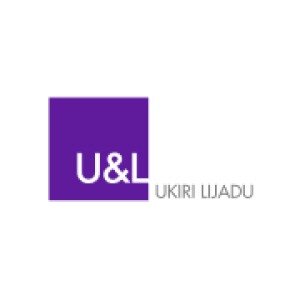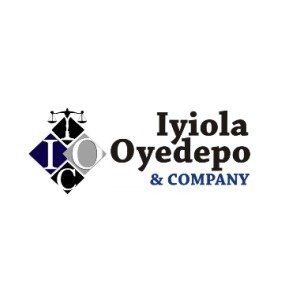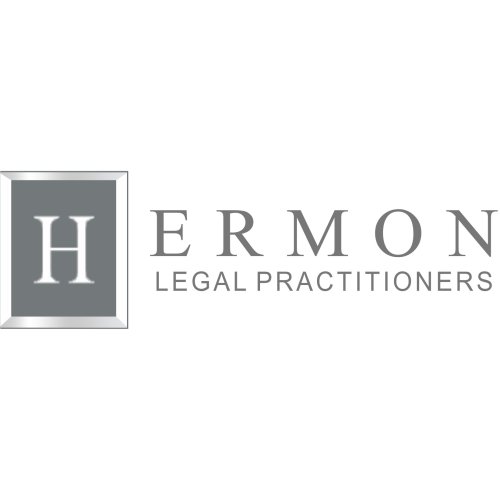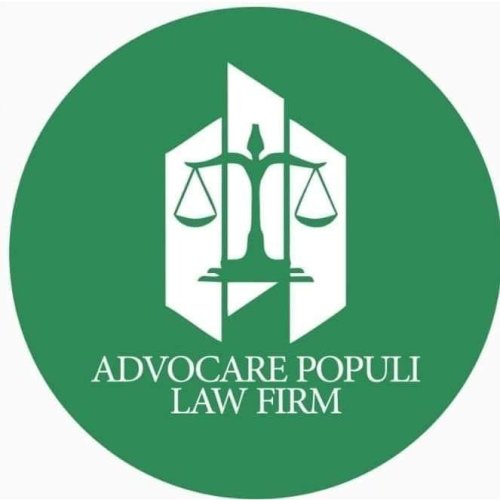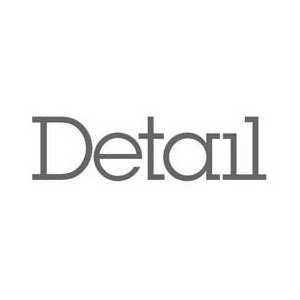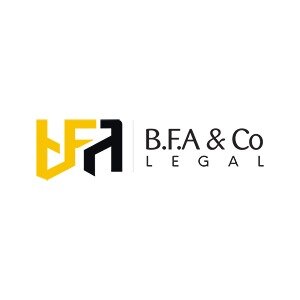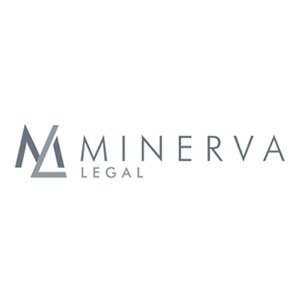Best Energy Regulatory Law Lawyers in Lagos
Share your needs with us, get contacted by law firms.
Free. Takes 2 min.
List of the best lawyers in Lagos, Nigeria
Legal guides written by Adeola Oyinlade & Co:
- Procedure and Requirements for Work Permit and Visas in Nigeria
- The Step-By-Step Procedure of How to Apply for Microfinance Bank License Online in Nigeria
- How to Ensure the Smooth Recognition and Enforcement of Foreign Judgments in Nigeria
About Energy Regulatory Law in Lagos, Nigeria
Energy Regulatory Law in Lagos, Nigeria refers to the legal frameworks and rules that govern the production, distribution, transmission, and consumption of energy. This includes electricity, oil, gas, and alternative energy sources. Due to Lagos being Nigeria's economic hub, it has a robust energy sector that is subject to strict regulations set by national and state agencies. Compliance with these laws ensures fair competition, safety, access to energy, investment security, and environmental protection. In Lagos, legal oversight extends to licensing, tariffs, metering, renewable energy initiatives, and consumer protection within the energy market.
Why You May Need a Lawyer
People in Lagos may require the assistance of a lawyer specializing in Energy Regulatory Law for various reasons. Common situations include disputes over energy bills, complaints about service reliability, negotiating power purchase agreements, interpretation of licensing or contractual terms, responding to compliance investigations, applying for permits, and navigating regulatory requirements for business operations in the energy sector. Legal experts also assist businesses with due diligence, structuring renewable energy projects, regulatory reporting, and advocacy before regulatory bodies. Individuals and companies benefit from professional guidance to avoid penalties, resolve disputes efficiently, and maintain lawful operations.
Local Laws Overview
Energy Regulatory Law in Lagos is shaped by both national legislation and state policies. Key statutes include the Electric Power Sector Reform Act, the Petroleum Act, the Nigerian Electricity Regulatory Commission Act, and local Lagos State environmental and energy policies. Regulatory agencies such as the Nigerian Electricity Regulatory Commission (NERC), Lagos State Ministry of Energy and Mineral Resources, and the Department of Petroleum Resources (DPR) oversee compliance, licensing, consumer protection, tariff approvals, and dispute resolution. These laws govern issues like electricity tariffs, consumer rights, renewal energy adoption, operational licensing, safety standards, and penalties for non-compliance. The regulatory landscape is dynamic, with ongoing reforms to encourage private investment and sustainable energy solutions in Lagos.
Frequently Asked Questions
What agencies regulate energy in Lagos, Nigeria?
The Nigerian Electricity Regulatory Commission (NERC), Lagos State Ministry of Energy and Mineral Resources, and the Department of Petroleum Resources (DPR) are the main regulatory bodies for electricity and petroleum in Lagos.
How do I obtain a license to operate an energy business in Lagos?
You must apply to the relevant regulatory agency, such as NERC for electricity or DPR for petroleum, and meet criteria regarding safety, technical standards, financial capability, and environmental compliance.
What should I do if I am overcharged on my electricity bill?
First, contact your electricity distribution company for clarification. If issues persist, you may file a complaint with NERC or seek legal advice to resolve potential billing disputes.
Is renewable energy regulated in Lagos?
Yes, renewable energy generation and usage are regulated by NERC and supported by Lagos State policies encouraging solar, wind, and other alternative energy solutions.
Can I generate and sell power independently in Lagos?
With the appropriate license from NERC or local authorities, independent power generation and distribution are permitted, subject to regulatory requirements.
How are tariffs for electricity determined?
Tariffs are set by NERC based on factors like operational costs, market conditions, and public hearings to ensure fairness for consumers and utilities.
What are the consequences of violating energy regulations?
Violations can result in fines, loss of licenses, criminal charges, or suspension of business operations, depending on the severity and nature of the breach.
How does Lagos ensure consumer protection in the energy sector?
Regulatory agencies provide guidelines for quality of service, transparent billing, customer complaints resolution, and penalties for non-compliance by service providers.
What paperwork is needed for an energy project in Lagos?
Licenses, permits, environmental impact assessments, safety certifications, and contractual agreements are usually required, depending on the scale and type of project.
Can legal advice help in negotiating energy contracts?
Yes, legal experts can review, draft, and negotiate contracts to ensure compliance with regulations, favorable terms, and protection against future disputes.
Additional Resources
- Nigerian Electricity Regulatory Commission (NERC) - Lagos State Ministry of Energy and Mineral Resources - Department of Petroleum Resources (DPR) - Nigerian Energy Support Programme - Nigerian Bar Association Section on Energy and Natural Resources Law - Federal Ministry of Power - Lagos Electricity Board - Public Complaint Commission (for dispute resolution assistance)
Next Steps
If you need legal assistance in Energy Regulatory Law, begin by gathering all relevant documents and details related to your issue. Research and shortlist legal professionals or law firms in Lagos with experience in energy law. Schedule consultations to discuss your matter, clarify potential outcomes, and understand legal fees. For urgent complaints or disputes, file a report with the appropriate regulatory agency as a preliminary step. Always ensure your lawyer is licensed and knowledgeable about local and national energy regulations to receive the best possible representation and advice.
Lawzana helps you find the best lawyers and law firms in Lagos through a curated and pre-screened list of qualified legal professionals. Our platform offers rankings and detailed profiles of attorneys and law firms, allowing you to compare based on practice areas, including Energy Regulatory Law, experience, and client feedback.
Each profile includes a description of the firm's areas of practice, client reviews, team members and partners, year of establishment, spoken languages, office locations, contact information, social media presence, and any published articles or resources. Most firms on our platform speak English and are experienced in both local and international legal matters.
Get a quote from top-rated law firms in Lagos, Nigeria — quickly, securely, and without unnecessary hassle.
Disclaimer:
The information provided on this page is for general informational purposes only and does not constitute legal advice. While we strive to ensure the accuracy and relevance of the content, legal information may change over time, and interpretations of the law can vary. You should always consult with a qualified legal professional for advice specific to your situation.
We disclaim all liability for actions taken or not taken based on the content of this page. If you believe any information is incorrect or outdated, please contact us, and we will review and update it where appropriate.






